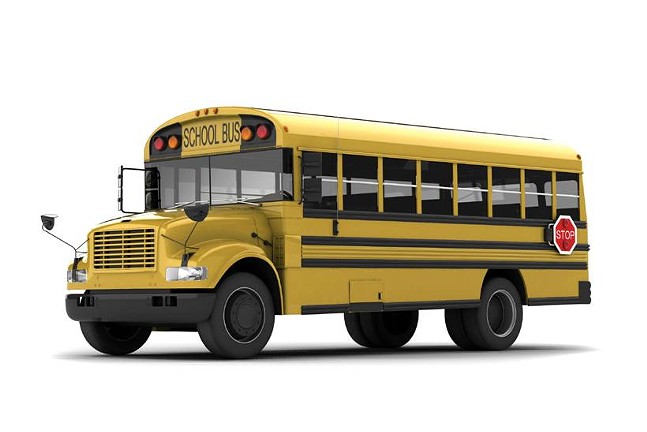Advocates ask Pittsburgh Public Schools to use school buses with cleaner diesel emissions
This week, advocates testified at the Pittsburgh Public Schools board meeting, asking that the district use only buses with updated diesel-emissions controls.
"It's the perfect time for the school district to say, 'We only want to utilize buses with emissions controls,'" says Rachel Fillipini of the Group Against Smog and Pollution (GASP), an environmental-policy and watchdog organization.
That's because the school district is negotiating a new contract with its bus-fleet providers. GASP seized on the timing to deliver more than 200 signed postcards to the meeting as well as testimony.
Buses that are a 2007 model or newer are generally equipped with diesel-emissions controls; older models can be retrofitted.
"As we approach 2016, it is perfectly reasonable to expect all school buses being used by the district to have pollution controls. These controls can reduce toxic diesel emissions by up to 90 percent. By using this technology, your students and staff, the community, and the drivers would be exposed to significantly less pollution," Jamin Bogi, GASP's policy and outreach coordinator, said in his written testimony.
GASP also asked the school board to include in its contract language that would mandate bus companies to train drivers in Pennsylvania's diesel idling law, which prohibits commercial vehicles weighing over 10,000 pounds from idling for more than five minutes. (There's an exception for vehicles with passengers still on board, to account for their heating/cooling needs.)
GASP has provided educational signs about the law for the outside of more than a dozen school districts in the area.
Ebony Pugh, Pittsburgh Public Schools public-information officer, says a new service agreement with bus companies wouldn’t begin until the 2016-17 school year. The new agreement has not been finalized and would require board approval, she says.
"Ensuring that our entire fleet is running clean is a priority for the district. While a majority of our vehicles are 2007 or newer or retrofitted, we anticipate that by the second year of our new service agreement all vehicles will meet the standard," Pugh wrote in an email to City Paper.
But GASP says the sooner the better.
"We feel that the school board should prioritize student health, and so they should negotiate a contract with school-bus companies that allows them to get the cleanest buses possible as soon as possible," Fillipini tells City Paper.
GASP is especially concerned because of a 2013 report out of the University of Pittsburgh Graduate School of Public Health that identified diesel particulate matter as the "greatest single cancer risk among individual pollutants in this area." The report looked at the 10-county Western Pennsylvania region, and examined air pollutants including benzene and formaldehyde, among others.
Bogi told the board of education: "Children are especially vulnerable, as they breathe at a faster rate than adults and are physically closer to diesel-pollution sources. And since their bodies are still developing, damage now could impact their bodies and minds for years to come."
City Paper will be following any developments in the school board's decision.


